Frontier Extended Stay Clinics (FESC)
Demonstration ended April 2013
The Need for an Alternative Clinic Model in Frontier
In frontier regions of the country, weather and distance can prevent patients who experience severe injury or illness from obtaining immediate transport to a hospital. For residents in many of those communities, providers in the local health clinic offer services traditionally associated with hospitals, until the patient can be transferred or is no longer in need of transport.
Legislation Authorizing the FESC Demonstration
The Medicare Prescription Drug Improvement and Modernization Act of 2003 authorized a three-year CMS FESC demonstration to test an enhanced clinic model in frontier areas to address the needs of seriously ill or injured patients who cannot be transferred to a hospital, or who need monitoring and observation for a limited period of time. The FESC legislation also required that the demonstration be budget neutral to the Medicare program.
What is a FESC?
In the legislation, a FESC is described as:
- located in a community where the closest short-term acute care hospital or critical access hospital is at least 75 miles away from the community or is inaccessible by public road; and
- designed to address the needs of –
- seriously or critically ill or injured patients who, due to adverse weather conditions or other reasons, cannot be transferred quickly to acute care referral centers; or
- patients who need monitoring and observation for a limited period of time
Project Timeline
In 2004, Congress appropriated funds to the Federal Office of Rural Health Policy (FORHP) at the Health Resources and Services Administration (HRSA) to support clinics preparing for the CMS demonstration. FORHP provided funding annually to the SouthEast Alaska Regional Health Consortium (SEARHC) to support the clinics participating in the demonstration.
CMS announced a demonstration of the FESC model and a Request for Proposals in the Federal Register on August 25, 2006, and the demonstration formally began in April 2010. The demonstration ended on April 15, 2013, and an Evaluation of the Medicare Frontier Extended Stay Clinic Demonstration: Report to Congress [Archived] was released in a report to Congress in November 2014.
Participants
Five clinics participated in the demonstration. All of the clinics received Medicare certification from the CMS Seattle Regional Office. The clinics are:
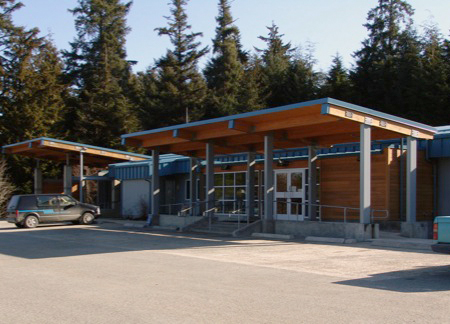 |
Alicia Roberts Medical Center Prince of Wales Island, Alaska |
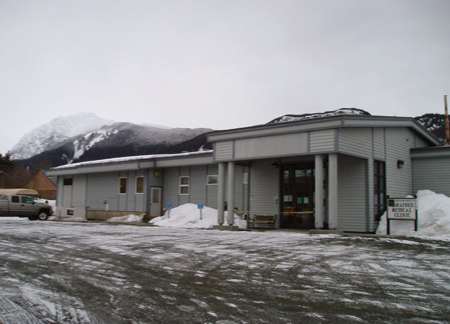 |
Haines Health Center Haines, Alaska |
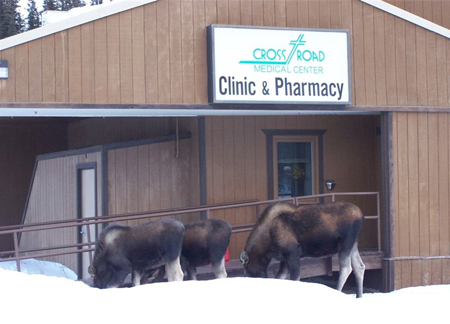 |
Cross Road Medical Center Glennallen, Alaska |
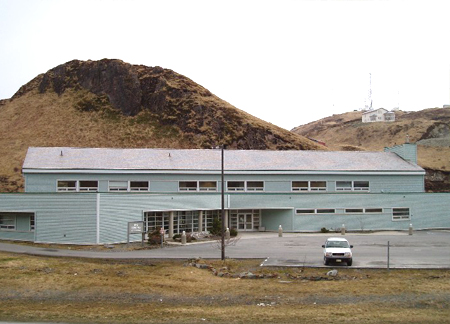 |
Iliuliuk Family & Health Services Unalaska, Alaska |
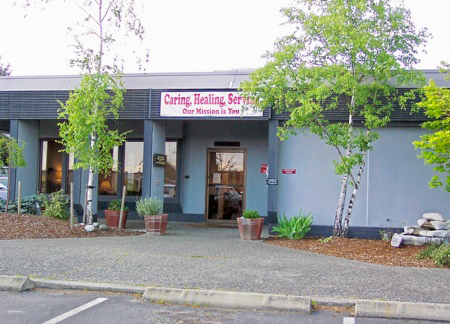 |
Inter Island Medical Center Friday Harbor, Washington (ceased participation in December 2012 when a Critical Access Hospital was opened on the island) |
Findings
A 2014 report from the Secretary of the U.S. Department of Health and Human Services, Evaluation of the Medicare Frontier Extended Stay Clinic Demonstration: Report to Congress [Archived], identifies five key lessons learned:
- The costs of building and maintaining extended stay capacity are high.
- The demand for extended stay services among Medicare beneficiaries is low.
- Extended stay services improve beneficiaries’ experiences.
- Extended stay services promote appropriate monitoring and observation services.
- Frontier communities would likely not be able to sustain extended stay capacity under fee-for-service Medicare.
An earlier evaluation, conducted in 2011 by the RUPRI Center for Rural Health Policy Analysis, found that FESCs provide critical services to isolated communities, with better quality of care and better experiences for patients and families. The program saved health insurers millions of dollars in transfer costs. However, FESCS did not recover the cost of providing care from the current health insurance reimbursement.
More Information on the FESC Demonstration
- Evaluation of the Medicare Frontier Extended Stay Clinic Demonstration: Report to Congress, Secretary of the U.S. Department of Health and Human Services
- Section 434: Frontier Extended Stay Clinic Demonstration Project, Medicare Prescription Drug Improvement and Modernization Act of 2003
- Details for Demonstration Project Name: Frontier Extended Stay Clinic Demonstration, Centers for Medicare & Medicaid Services
- The Frontier Extended Stay Clinic Model: A Potential Health Care Delivery Alternative for Small Rural Communities [not currently available online], Rural Policy Brief, RUPRI Center for Rural Health Policy Analysis
FCHIP Program Contact:
Sarah Heppner, Federal Office of Rural Health
Policy
sheppner@hrsa.gov
301.443.5982
